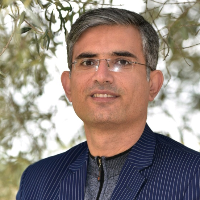Comparison of quality of work life and moral courage in auditors with and without professional code of conduct training
The present study was conducted with the aim of comparing the quality of work life and moral courage in auditors with and without professional code of conduct training. The research method in the present study is applied in terms of the audience and comparative causal in terms of its nature, and it is considered as a cross-sectional survey research. The statistical population includes all auditors who are members of the Iranian Certified Accountant Society in 2023. The sampling method in the present study was available and using this method, 214 people were selected as the sample group. Sekarka's moral courage questionnaire (2009) and Walton's quality of work life (1973) were used to measure the research variables. Multivariate analysis of variance test was used to analyze the data in the present study. The findings show that the average scores of the quality of work life (Eta coefficient 0.26 and significance level less than 0.01) (fair and adequate pay, safe and healthy work environment, provision of opportunities for growth and continuous security, legality in the organization, social dependence in life) work, the general atmosphere of life and the development of human capabilities) and moral courage (Eta coefficient 0.50 and significance level less than 0.01) (moral factor, multiple values, threat tolerance and moral purpose) significantly in the group with a history of moral education A professional is higher than people without education. As a result, professional code of conduct training can increase the quality of work life and moral courage of auditors.
-
The Effectiveness of Positive Intervention on Spiritual Well-Being of Older People in Nursing Homes
Tahereh Khaleghyan-Chaleshtory, *
International Journal of Body, Mind and Culture, Jan-Feb 2024 -
The Effectiveness of Logotherapy on the Sense of Energy and Spiritual Self-Esteem of the Elderly Living in Nursing Homes
, Hiva Mahmoodi *, Samaneh Aghajani
Journal of Aging Psychology,



